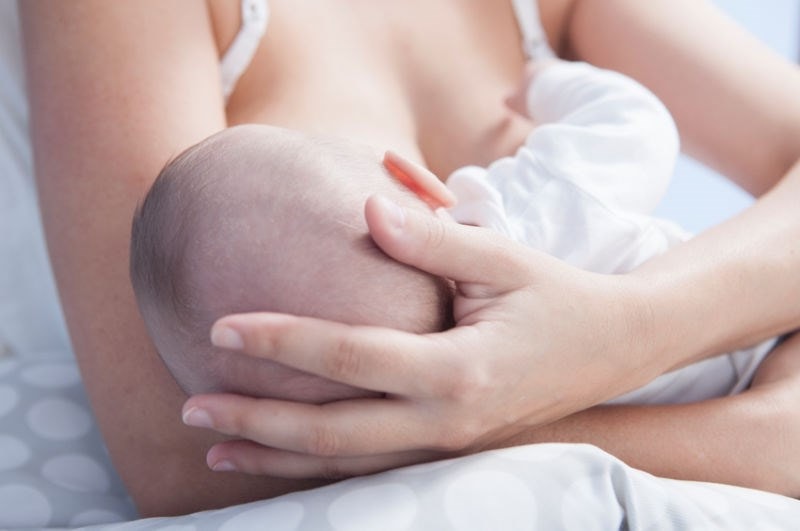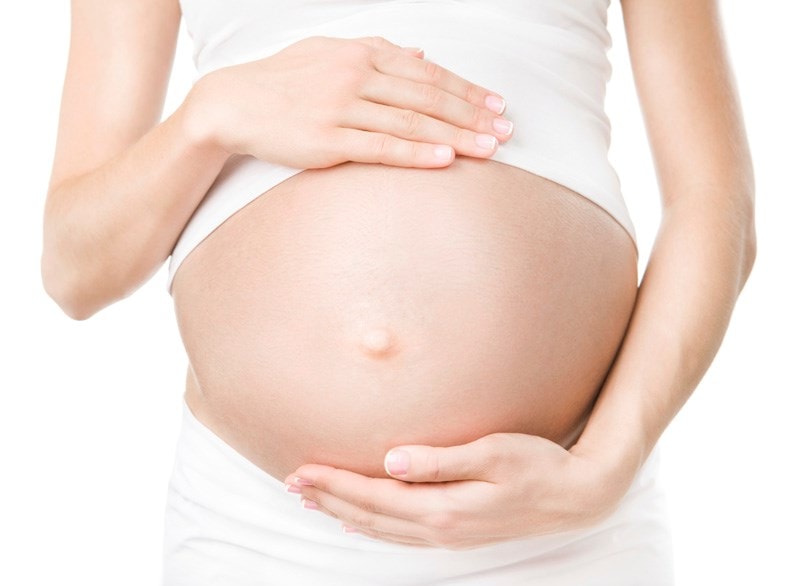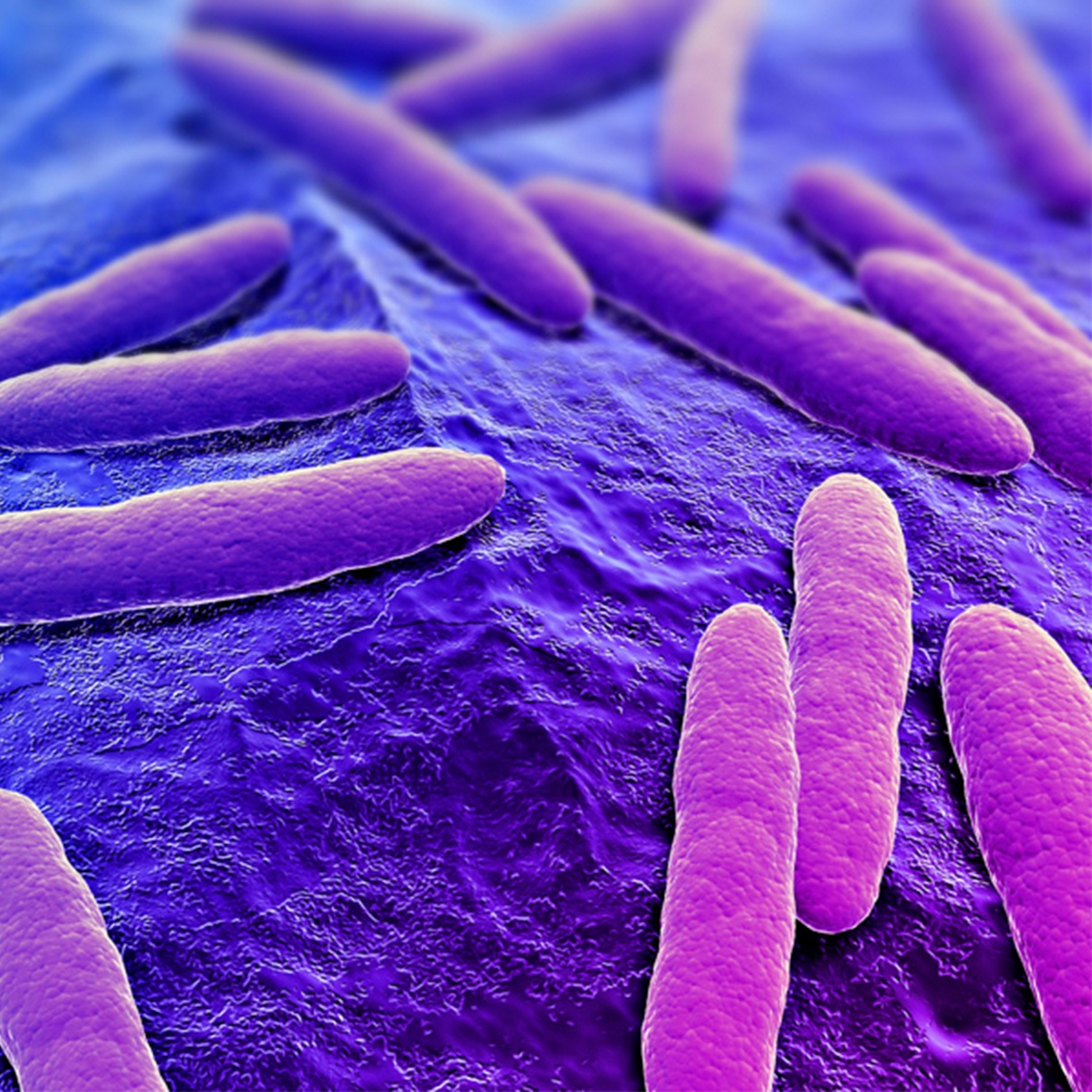Can Probiotics Aid Mastitis & Breast Health?
Having a new baby is one of the most magical times in a woman’s life, and breastfeeding the new bundle of joy can be a special and bonding experience. But for some mums, breastfeeding can become a painful trauma which can ultimately stop them from feeding their children, and can sometimes force them to switch to formula milk. One of the most common issues to affect nursing mothers is an inflammation of the nipple, known as mastitis.
Within this article:
- Probiotics also important for Breast(milk) Health
- Could probiotics help with other infections like nipple thrush?
- Keeping baby's flora healthy
- Keeping mum healthy

Symptoms of mastitis include sore, red and inflamed nipples, often with accompanying discharge, and this nasty and painful condition doesn’t just affect humans – it’s also a very common problem in dairy cattle and other nursing mammals, and antibiotics are currently the only conventional medication. Not an ideal solution for mother and baby, or milk-producing cattle! There is also a concern that pathogenic bacteria are becoming increasingly resistant to antibiotic treatment, as indicated by a 2014 study(1) conducted at the University of Madrid:
You may like to read Ben's blog on research into using probiotics against antibiotic resistant pathogens.
“Multi-resistance to antibiotics, together with formation of biofilms and mechanisms for evasion of the host immune response, is a common feature among the bacterial agents involved. This explains why [mastitis] used to be exclusive to antibiotic therapy and why the development of new strategies for mastitis management based on probiotics is particularly appealing” commented the researchers.
Probiotics also important for Breast(milk) Health
Consequently, there is research being conducted into viable alternatives, particularly those which have preventative potential, and no risk of unpleasant side effects. Evidence is suggesting that the benefits of our resident microbiome extend far beyond the gut, and dysbiosis – an imbalance of good and bad bacteria – can therefore be an issue for breast health too. A 2015 study(2) published in the journal Breastfeeding Medicine determined that probiotics may have a significant role to play in the maintenance of breast health for nursing mothers:
“Recent results indicate that human mastitis and painful breastfeeding may be characterized by a mammary bacterial dysbiosis...”
The researchers assessed the efficacy of a Lactobacillus strain, L. fermentum CECT5716, in reducing the numbers of undesirable Staphylococcus bacteria in the breast-milk of women suffering from mastitis symptoms. The results indicated that those women who received probiotic supplements had lower levels of pathogenic bacteria than the control group. Another Spanish study also conducted this year explored the use of probiotics as a potential intervention to improve the quality of breast milk microbiota, also with the aim of reducing the incidence of mastitis and alleviating symptoms.

“Breast milk is one of the key factors in the development of gut microbiota of the infant. There is an enteric-breast circulation, which is higher at the end of pregnancy and during breastfeeding. This circulation could explain the modulation of the breast microbiota by using probiotics. It could have a positive impact not only for the health of the mother, who would reduce the incidence of mastitis, but also for their infant. The use of probiotics is a hopeful alternative in various gynecological pathologies(3).”
Could probiotics help with other infections like nipple thrush?
Another common issue often experienced by nursing mums is Mammary candidiasis, or ‘nipple thrush’ which is a similar issue to mastitis in terms of symptoms, but which is caused by a fungal (yeast) infection rather than bacterial. It can be passed on to mum from a fungal infection in baby’s mouth during feeding; conventional treatments include antifungal cream or gel, usually miconazole, to put on the infection, and sometimes a steroid cream in more severe cases, but thankfully beneficial bacteria are also known to help suppress yeast overgrowth (4). As well as taking oral probiotics, putting probiotic powder directly onto the affected areas in the baby’s mouth can help to alleviate and prevent this type of condition, as can placing probiotic powder onto the nipple before feeding.
Keeping baby's flora healthy
So it's also a good idea to keep baby's microbiome healthy to reduce the incidence of thrush, but as babies obtain their first influx of beneficial bacteria from their mums, as they pass down the birth canal during a normal vaginal delivery, it’s imperative that mum herself hosts a healthy microbiome (take a look at our sister site, the Probiotics Learning Lab, to read all about the microbiome). A good way of helping to ensure that this is the case is for pregnant women to take a good quality, well-researched probiotic containing strains of bacteria known to help a baby’s developing gut, ideally during the last trimester of pregnancy.

Keeping mum healthy
Additionally, in order to help prevent infections during pregnancy and whilst nursing, it makes good sense for mum to keep her own health and immunity in good order. Taking a daily probiotic supplement can help to support immune function and fight infections. If mum is unfortunate enough to need antibiotic treatment, then it’s a good idea to take an appropriate probiotic at the same time to try and minimise any side effects, particularly a product containing bacterial strains that are hardy enough to withstand the antibiotic effects. Visit the Probiotics Learning Lab for more information on taking probiotics with antibiotics.
You can also take a look at the following article for more information on probiotics for immune health.
References
- L. Fernandez et al (2014) Probiotics for human lactational mastitis , Beneficial Microbes Jan:2014, 5(2), 169 - 183
- (2015), Lactobacillus fermentum CECT 5716 Reduces Staphylococcus Load in the Breastmilk of Lactating Mothers Suffering Breast Pain: A Randomized Controlled Trial, Breastfeed Med. 2015 Sep 9. [Epub ahead of print] Álvarez-Calatayud et al, (2015), Microbiota in women; clinical applications of probiotics, Nutr Hosp. 2015 Jul 18;32 Suppl 1:56-61. doi: 10.3305/nh.2015.32.sup1.9481.2. Maldonado-Lobón JA et al
- Mendonça et al (2012), Effects of probiotic bacteria on Candida presence and IgA anti-Candida in the oral cavity of elderly.Braz Dent J. 2012;23(5):534-8.
Popular Articles
View all Female Health articles-
Female Health18 Sep 2023
-
Female Health12 Jul 2023


